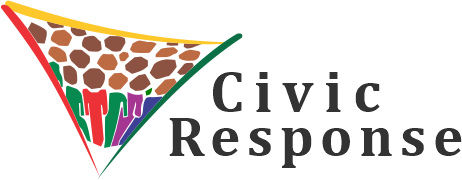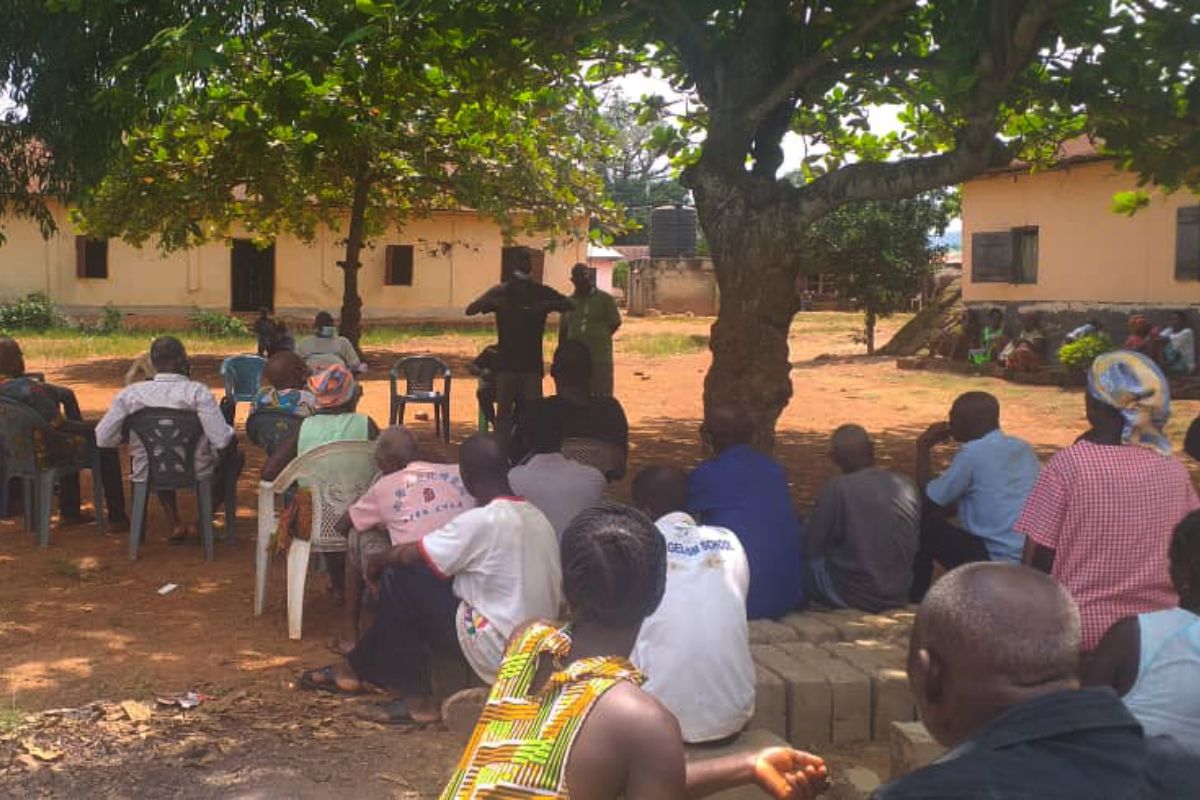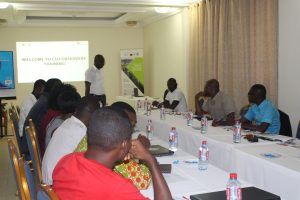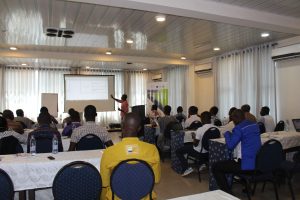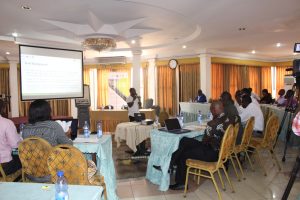Civic Response has resumed community visits following a long break due to COVID-19 restrictions.
The community visits which took place in August 2021, had Civic Response visit 49 communities in 15 districts across the country. The districts visited were Ho in the Volta Region, Jasikan in the Oti Region, Goaso in the Ahafo Region, Dormaa in the Bono Region, Bibiani, Sefwi Wiawso, Juaboso & Aowin in the Western North Region, Kumawu, New Edubiase & Bosome Freho in the Ashanti Region, Oda, Kade & Asankragwa in the Eastern Region as well as Assin Fosu in the Central Region.
The community visits were to assess the states of the Real Time Monitoring(RTM) and the Social Responsibility Agreement (SRA) projects being implemented by Civic Response in these districts. Additionally, the trip was to find out which communities had SRA committees and which communities didn’t so as to assist communities without SRA committees to form one and to initiate the process of capacity building for SRA committees to demonstrate transparency and accountability on the implementation of SRA projects to their communities.
In most of the communities visited, there were community durbars where issues pertaining to the projects were raised, discussed and addressed.

SOCIAL RESPONSIBILITY AGREEMENT
Communities living within 5km radius of forests where logging is taking place are entitled to receive 5% of stumpage fees paid by timber companies as SRA payments. Out of the 49 communities visited, 20 communities have received their SRAs, 4 communities were yet to receive any SRA and one community, Gyadam (Oda) was yet to sign an SRA. Communities must first sign an SRA with the timber contractor before any funds can be paid to them.
Following the advice of Civic Response, communities have used and are using their SRA funds for developmental projects. For instance, the GHc5,600 SRA funds received by the Merewa (Goaso) community has been used to construct a community centre while Sui (Sefwi Wiawso), Dodowuraso (Kade) and Nagode (Nkawie) communities have used their funds to either build or renovate school buildings. Gambia No 2 community (Goaso) have constructed a Community-based Health Planning and Services (CHPS) compound. Sayerano (Juaboso) has so far received GHc10,800 SRA funds.
REAL TIME MONITORING (RTM)
Since 2018, Civic Response with the support of RFUK has been implementing Real Time Monitoring(RTM) of Ghana’s forest using the ForestLink app. We have so far, trained 75 forest-fringed communities in 17 districts across the country to report forest infractions using the ForestLink mobile application. However, Covid-19 restrictions in 2020 and 2021 interrupted the implementation of RTM which also led to a drastic reduction of the number of alerts being sent on the platform. The community visits were, therefore, used to revamp RTM implementation in Ghana and to understand the reason behind the reduction of alerts received.
It was welcoming to learn that the sending of alerts was fewer as a result of the reduction of illegalities happening in implementing communities. However, the monitors admitted that, there were still illegal activities happening in adjoining communities. Some technical challenges with mobile network connectivity and mobile devices also accounted for the drastic reduction of alerts.
This discovery necessitated the organization of a skills update and lessons sharing workshop for community monitors and verifiers held in Accra in October, 2021 to address the technical challenges as well as strategize as to how to introduce RTM to other adjoining communities.

FOREST SERVICE DIVISION (FSD)
Another issue that came up during our trip was the issue of the lack of feedback from FSD officials. According to some community monitors, they were discouraged from reporting infractions to the FSD officials because they were not getting feedback from FSD when they report infractions to them. Community monitors from Abutia, Temante, Anhwiaso, Gyadam, Amantia, and Kontenase lamented not getting feedback from FSD. The Kantankrubo community in particular mentioned the fact that Forestry Commission’s (FC) stoppage of the arrest of offenders discouraged them from reporting infractions.
THE MODIFIED TAUNGYA SYSTEM(MTS)
The MTS is an agroforestry system within forest reserves where farmers are allocated a portion of degraded forest reserve to plant timber seedlings alongside food crops. The farmers receive 100% proceeds from the crops while benefits from the sold timber are shared among Forestry Commission (40%), the farmers (40%), the traditional landowners (15%) and the forest-adjacent community (5%).
Several communities including Gyadam and Ananekrom (Kumawu) expressed their interest in joining MTS as it serves as an opportunity to increase their income as well as support the restoration of the degraded forest reserve. It was observed that communities like Akoburaso (Nkawie), Anhwiam (Assin Fosu), Denchi (Sefwi Wiawso) and Aboagyekrom (Sefwi Wiawso) communities are already practicing the Modified Taungya system. For instance, 200 farmers in Aboagyekrom and 350 in Denchi are involved in the MTS.
However, it was reported by communities around Krokusua Forest Reserve in Juaboso District that even though they have noticed that permits have been granted to a contactor to harvest timber from the MTS they planted, they have not received their benefit-sharing arrangement as was agreed on between them and the Forestry Commission.
LAND ACT
Civic Response also took advantage of the trip to educate communities about the new Land Act which came into force in December 2020. It is a consolidation of all existing laws on land and land administration into a single act.
